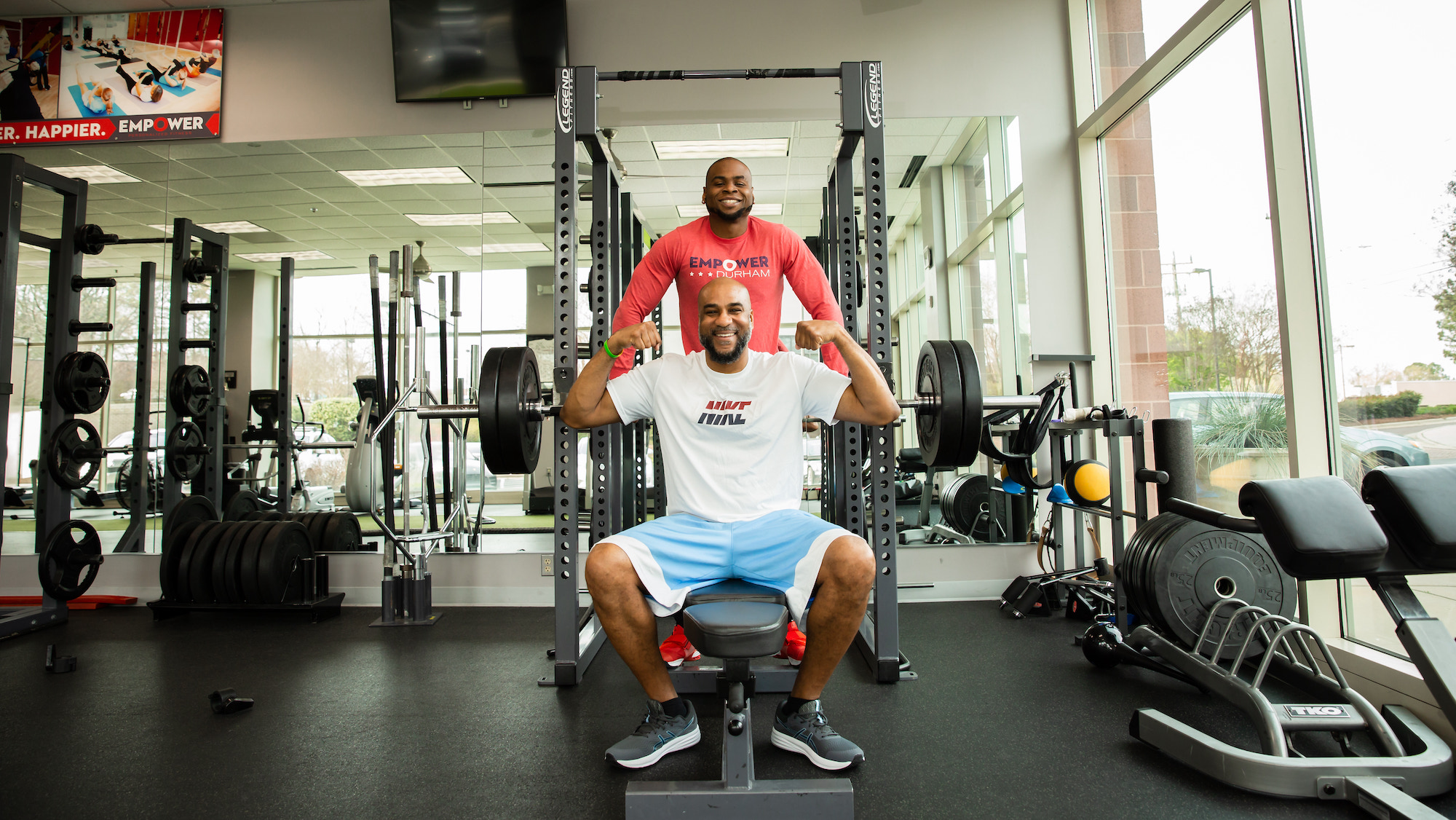The start of a new year is the perfect time to refresh your health and wellness routine, especially as we continue navigating the stresses of modern life. In 2025, it’s crucial to take a holistic approach to feeling truly *alive*, not just physically but mentally, emotionally, and socially. The habits you cultivate now will determine your energy, strength, and happiness in the months to come.
Here are 5 powerful ways to boost your vitality and reclaim your energy:
1. Lift Heavy Weights to Increase Functional Strength and Lean Muscle Tissue

When it comes to feeling more alive, strength training is one of the most effective ways to build both physical and mental resilience. Lifting heavy weights isn’t just about bulking up; it’s about building functional strength, which translates to increased energy for everyday tasks. Whether you’re lifting groceries, carrying children, or performing other daily activities, stronger muscles make everything easier.
How It Improves Your Health:
Increased Lean Muscle Mass: Building muscle improves your metabolism, helping you burn more calories even at rest. This is because muscle tissue requires more energy to maintain than fat, so the more muscle you have, the higher your resting metabolic rate (RMR).
Improved Metabolism and Weight Loss: A faster metabolism means you can burn fat more efficiently. As you build muscle, you create a more calorie-hungry body that helps you shed excess weight. This is a key benefit of strength training when it comes to long-term fat loss.-Improved Bone Health: Weight-bearing exercises strengthen bones, reducing the risk of osteoporosis.
Enhanced Mental Clarity: Strength training has been shown to improve brain function and mental acuity, boosting your focus and mood.
Higher Energy Levels: Strengthening your body increases your stamina, making you feel less fatigued throughout the day.
Start by focusing on compound movements (such as squats, deadlifts, and bench presses) that work multiple muscle groups, and gradually increase your weight as your strength improves. Aim for 2-4 weight-lifting sessions per week, incorporating rest days in between for muscle recovery.
2. Drink More Water and Stay Well Hydrated

Hydration is one of the simplest yet most effective ways to boost your overall well-being. Water is essential for nearly every bodily function—from digesting food to regulating body temperature to supporting cellular health. Yet, many people are chronically dehydrated, which can lead to fatigue, brain fog, poor digestion, and even emotional instability.
How It Improves Your Health:
Energy Boost: Even mild dehydration can cause fatigue, sluggishness, and irritability. Staying hydrated improves energy levels and helps combat tiredness.
Brain Function: Proper hydration helps maintain mental clarity, focus, and cognitive performance.
Improved Digestion: Water helps break down food, absorb nutrients, and flush out toxins.
Emotional Stability: Dehydration can contribute to mood swings and anxiety, making it harder to regulate emotions.
To stay hydrated, aim to drink at least ½ your body weight in oz of water every day (more if you are sweating a lot). Consider carrying a water bottle with you throughout the day as a reminder to hydrate frequently.
3. Get 7-9 Hours of Uninterrupted Sleep to Restore Your Body and Mind

It’s no secret that sleep is the cornerstone of good health, yet many people underestimate its importance. Sleep allows your body to repair muscles, regulate hormones, consolidate memories, and refresh your mind. Quality sleep (7-9 hours for most adults) is crucial for optimizing mental and physical performance and ensuring you feel energized and emotionally balanced throughout the day.
How It Improves Your Health:
Restores Physical Health: During deep sleep, muscles repair, and growth hormones are released to support tissue regeneration.
Boosts Immune Function: Sleep helps regulate your immune system, making you less susceptible to illness.
Mental Acuity: Sleep enhances cognitive function, improving memory, concentration, and decision-making.
Emotional Resilience: A good night’s sleep helps regulate mood and stress levels, making it easier to cope with challenges.
To improve your sleep quality, establish a consistent bedtime routine, limit screen time before bed, and make sure your sleep environment is cool, dark, and quiet.
4. Eat More Whole Foods, Especially Fruits, Vegetables, and Lean Protein

What you eat has a direct impact on how you feel, both physically and emotionally. Whole, nutrient-dense foods—especially fruits, vegetables, and lean protein—provide the vitamins, minerals, and antioxidants your body needs to thrive. In contrast, heavily processed foods, loaded with sugars, unhealthy fats, and artificial ingredients, can sap your energy, affect your mood, and lead to chronic health issues.
How It Improves Your Health:
Higher Energy: Whole foods are packed with nutrients that support consistent energy levels throughout the day, while processed foods can lead to energy crashes.
Stronger Immune System: Fruits and vegetables are rich in antioxidants, which protect your cells from damage and support overall immune health.
Better Digestion: Whole foods provide fiber, which aids digestion and promotes gut health.
Balanced Mood: Nutrient-dense foods support brain function, promoting emotional stability and reducing the risk of mood disorders like depression and anxiety.
Aim to fill at least half of your plate with vegetables, eat a variety of colorful fruits, and choose lean proteins like chicken, fish, beans, and legumes. Minimize your consumption of processed foods, which are often high in refined sugars, unhealthy fats, and sodium.
5. Spend Less Time on Screens and More Time in Nature or Engaging in Real-Life Activities

In today’s digital world, it’s all too easy to get lost in endless hours of screen time—scrolling through social media, binge-watching TV shows, or getting caught up in the constant stream of online information. While screens may offer convenience, entertainment, and even a sense of connection, they can also have detrimental effects on our mental health, relationships, and overall well-being. In fact, research has shown that excessive screen time—particularly social media use—can lead to increased anxiety, depression, and social isolation.
Instead of spending countless hours in front of a screen, consider spending more time in nature or engaging in real-life activities that foster genuine connections with others. This shift not only has profound effects on your physical health but also contributes significantly to your mental and emotional well-being.
How It Improves Your Health:
Reduced Stress: Spending time in nature is scientifically shown to reduce cortisol levels, the hormone responsible for stress. Whether it’s a walk in the park, hiking in the mountains, or simply sitting by a lake, nature has a calming effect on the nervous system. Additionally, it has been linked to improved mood and reduced symptoms of anxiety and depression.
Improved Mood: Social media, while it can help you stay in touch with friends and family, often leads to feelings of comparison and inadequacy, contributing to negative self-esteem and stress. On the other hand, engaging in face-to-face interactions with loved ones, or participating in activities like group sports, volunteering, or simply spending quality time with family and friends, boosts happiness and fosters a deeper sense of belonging. These in-person connections have been shown to enhance emotional well-being and life satisfaction.
Strengthening Relationships: At the core of true happiness is connection. People who engage in meaningful relationships and invest time in cultivating close bonds with family, friends, and communities tend to report higher levels of life satisfaction and lower levels of loneliness. Social support plays a crucial role in navigating life’s challenges, making it easier to cope with stress, illness, or personal struggles. In fact, the quality of your relationships is one of the most reliable predictors of long-term happiness.
Longevity: One of the most fascinating findings in longevity research comes from the famous Blue Zones—regions around the world where people live longer, healthier lives. One key factor they share? Strong social connections. Studies show that those with strong social networks and a sense of community live longer, healthier lives. Loneliness and isolation, on the other hand, have been linked to increased risks of heart disease, dementia, and early mortality. Having a solid network of supportive friends and family not only provides emotional fulfillment but also helps you live a longer, more vibrant life.
Physical Health Benefits: Engaging in real-life activities, especially outdoors, offers numerous physical benefits. From increased physical activity (walking, hiking, playing sports) to exposure to sunlight (boosting vitamin D levels), these activities support overall health. Spending time in nature also encourages movement and exercise, which are essential for maintaining cardiovascular health, mobility, and strength.
Try to limit your screen time by setting boundaries—such as no screens during meals or before bed—and schedule regular outings to parks, nature reserves, or even just walks around your neighborhood. Prioritize face-to-face interactions to strengthen your emotional connections.
In 2025, feeling more ALIVE is about more than just physical fitness—it’s about a balanced approach that nurtures your body, mind, and relationships. By incorporating these five habits into your life—lifting weights, staying hydrated, prioritizing sleep, eating whole foods, and reducing screen time—you’ll not only enhance your health and strength but also improve your emotional well-being and mental clarity.
Take small steps today to implement these practices and experience the vibrant energy and happiness that comes with a life well-lived. Let 2025 be your year of vitality, clarity, and true aliveness!



